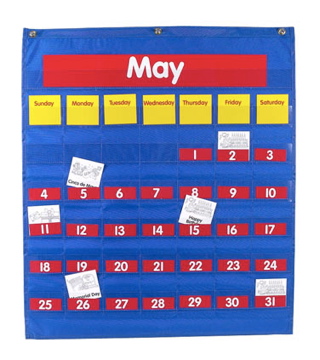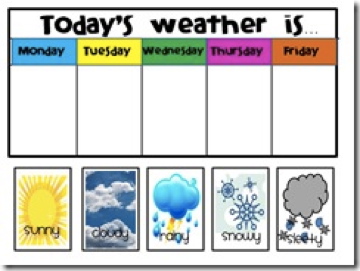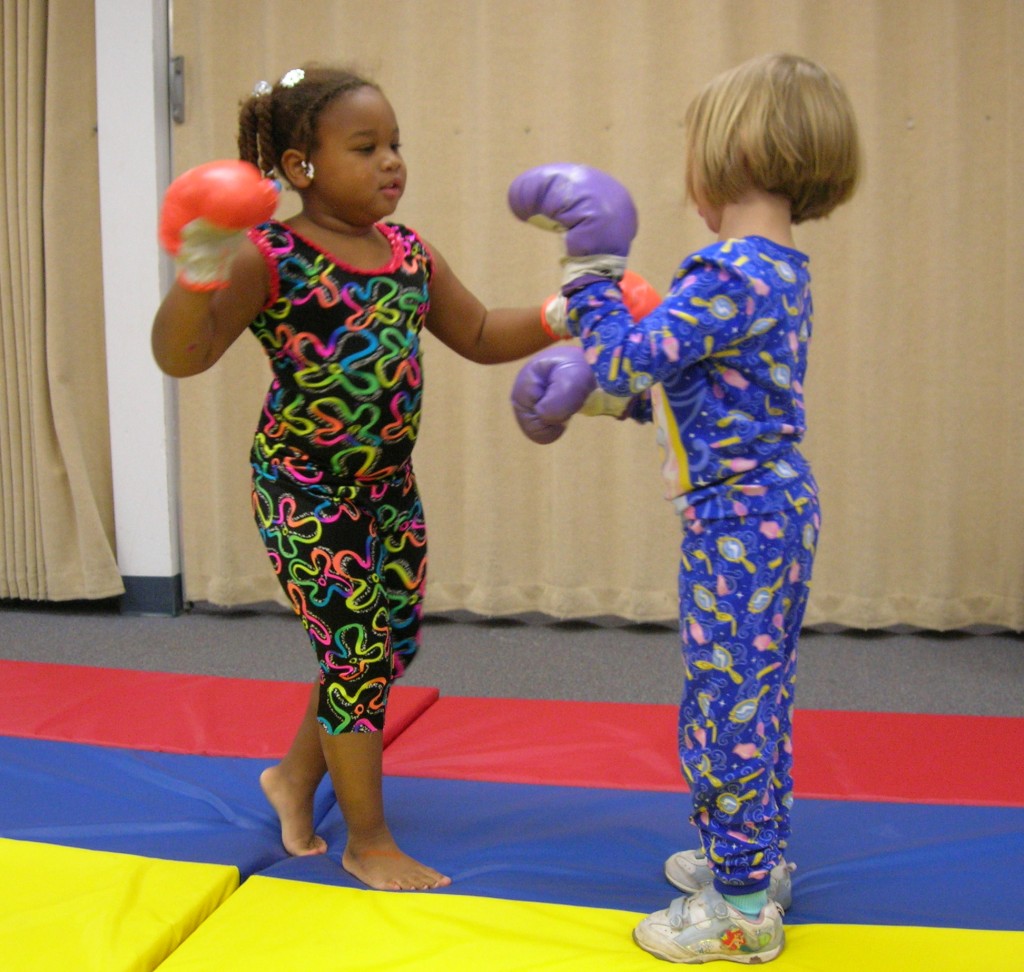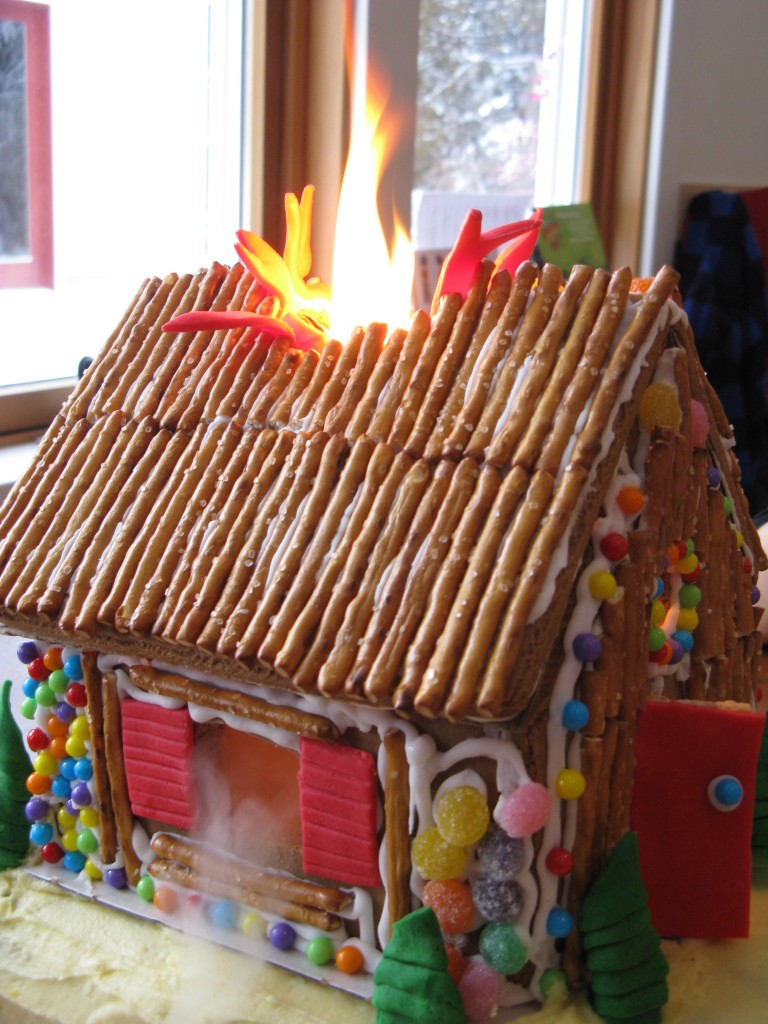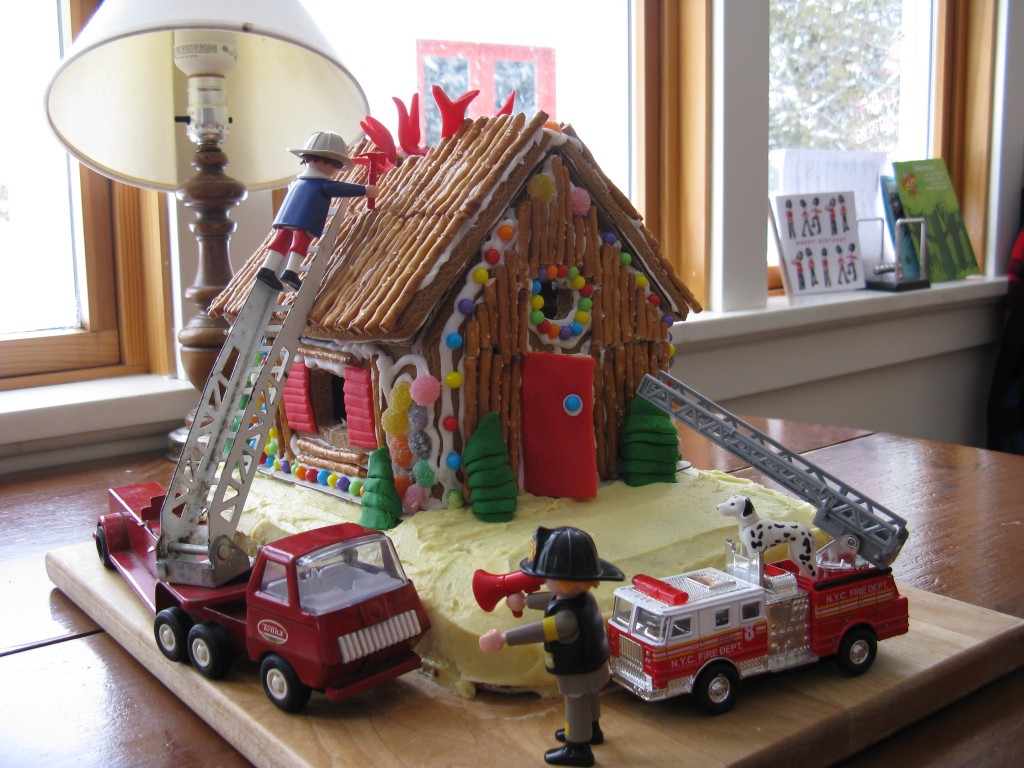A World of Books and Children
Search and enjoy 8 years of posts chock-filled with ideas from It’s OK Not to Share and beyond.
While researching my book, I've visited a lot of preschool classrooms. Preschool, pre-K, Young Fives, kindergarten, Montessori, public, private, charter, you name it. I've observed too many to count. One thing I almost always see in each early ed. classroom is an enormous calendar.
This calendar charts the days, month and weather. During morning circle time, the children gather on the rug at their teacher's feet and go over the day's weather, the day of the week, and the day's date. Today they'll be counting to 20.
Calendar time takes center stage each morning in thousands of classrooms. I believe it's misplaced.
I've never known an adult who doesn't know what Monday is. Or a third grader, for that matter.
Grasping the days of the week is not hard, but it takes some growing up to be relevant. Many young kids live in a fog where time is concerned. "Can we play at Mia's house yesterday?" "My spaghetti stew needs to cook for 100 hours." Time and days of the week are vague. That's OK. Young kids function best with time statements like "after nap." Time will settle down in their minds soon enough. Why impose our ordered rows of time on them now?
The same is true of most classroom weather charts. Putting the "sunny" picture in the Wednesday slot doesn't teach much. Weather is only relevant to young kids when they are outside in it. So get them outside -- whatever the weather. That's what makes weather meaningful.
Group circle time is best when it's kept short and relevant. It's great for singing songs, hearing stories and puppet shows and sharing news together. Counting is naturally integrated in many songs and stories ("Five little ducks went out to play" "Ten little monkeys jumping on the bed"). That's the kind of counting that kids care about. Keeping group circle time short and sweet is important. The rest of the time kids will be busy learning on their own - engaged in meaningful play.
I know calendars are an entrenched tradition in classrooms for 3-5 year-olds, but it's time to question that. What's the point?
So chuck the calendars. Monday can wait. We need to respect that kids have better things to do.
What's your take? Why do you think The Calendar is so prevalent in today's classrooms? What would be more relevant to kids?
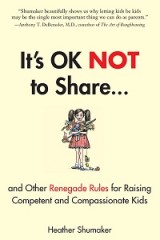
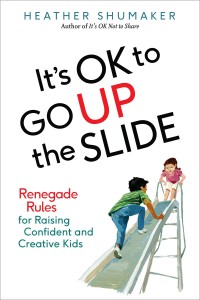 Interested? Read more about renegade parenting and ideas to transform families and classrooms.
Interested? Read more about renegade parenting and ideas to transform families and classrooms.
I wrote an op-ed piece about the President’s call for universal preschool for 4-year-olds, and my editor replied asking ‘surely you don’t think having the kids learn the alphabet and numbers 1-10 is too academic?’
Well, er, yes I do.
If letter recognition and counting is an objective on its own, and is “taught” I don’t think it belongs in preschool. Here’s what does belong:
- Dramatic play – dress-up costumes, acting out stories, playing make-believe on topics of the children’s own choosing
- Physical play – running, jumping, climbing, sliding, chasing, and yes, even boxing and wrestling rough-and-tumble play
- Creative play – messy explorations with art and nature, open-ended play ideas involving sticks, logs and cardboard boxes
- Outdoor play – whatever the weather, hopefully with trees, dirt, sand and water
- Screams and tears – kids expressing their emotions, understanding it’s OK to be mad or sad and figuring out what’s appropriate and what’s not (All feelings are OK; all behavior isn’t.) This is huge.
- Conflict – kids encountering other kids and having problems. This is the life essential skill of conflict mediation: figuring out what-the-heck to do when conflict occurs (as it always will). Enormously important. Learning the basics of being a civilized human being.
- Meaningful, age-appropriate pre-literacy. Songs, finger chants, nursery rhymes, reading aloud, telling stories aloud, games, puppet shows, signs, dictated messages and stories.
Notice I said “pre” not literacy. Literacy means the ability to understand symbols and read and write. “Pre-literacy” and “pre-school” mean “before literacy” and “before school.” We are in danger when we skip over the prefix. A few young children take great interest in letters and teach themselves how to read at a tender age. Bravo – don’t stop them! But give the vast majority of young kids breathing space and time to be where they are now.
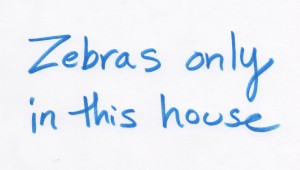 Pre-literacy is meaningful to kids when it’s relevant to their lives. A sign saying “Shh! Lucy’s animals are sleeping” is relevant to Lucy’s game. A homemade book with a child’s very own words (dictated to an adult) is meaningful and joyous. Nothing beats reading books aloud multiple times a day. There’s no agenda to make kids study the alphabet, like learning how to get dressed and learning how to behave, literacy is simply integrated into daily life.
Pre-literacy is meaningful to kids when it’s relevant to their lives. A sign saying “Shh! Lucy’s animals are sleeping” is relevant to Lucy’s game. A homemade book with a child’s very own words (dictated to an adult) is meaningful and joyous. Nothing beats reading books aloud multiple times a day. There’s no agenda to make kids study the alphabet, like learning how to get dressed and learning how to behave, literacy is simply integrated into daily life.
It’s important for kids to love stories and understand the power of words before they move on to true literacy.
And counting? Young kids can recite 1-2-3-4-5-6-7-8-9-10. That’s memory, not counting. True counting involves one-to-one correspondence, the mental concept that “two” means two of something. Kids develop one-to-one correspondence at different ages. Songs, stories and daily life reinforce these concepts already, and when the child is ready, she will learn them. Why waste her time drilling counting when she needs to be learning something else?
The President is calling for universal preschool, modeled after programs in Alabama where business people supported statewide preschool as a cost-effective method of generating a reliable, future workforce. These preschools have play, but it’s a heavy dose of teacher-directed play, the kind found in most public school classrooms (stack these blocks, play in this “learning center” now).
A high-quality preschool program looks radically different. It’s open-ended play, play directed by children, play that’s guided by adults trained in coaching emotions and conflict resolution. And no, it doesn’t teach the alphabet or counting.
I fear we are forgetting the “pre” and sending 4-year-olds directly to “school.”
What do you think belongs in PRE-school? What are your hopes and fears for national universal preschool?
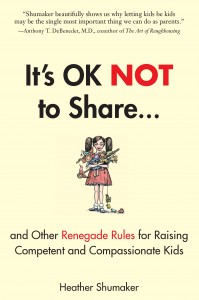 If you like these ideas, read more in my book:
If you like these ideas, read more in my book:
It's OK Not to Share...And Other Renegade Rules for Raising Competent and Compassionate Kids.
Free sample chapter and videos here.
Once I learned of the glories of adding dry ice to a birthday cake, I couldn't resist. My first creation was a volcano cake, complete with red lava frosting and dry ice smoke cascading down. When my son turned 5 last week we celebrated with a Burning House Firefighter Birthday Cake.
I built the house out of gingerbread, since a cake house seemed too wobbly. I put in plenty of doors and windows for the smoke to pour out, and gouged a big hole in the roof. The roof hole was originally intended to be a smoke hole, but our trial run demonstrated that the dry ice goes downhill, so we switched and put the fire up top.
For good flames, I stuck lots of birthday candles together with their ends nested in playdough for stability. The roof was removable for easy lighting and dry ice pouring. I used frosting to stick on pretzels to give the house a log cabin look. Seemed more authentic than just a candy gingerbread house.
Then I placed the entire house on a flat 9 x 13" cake and arranged the toy firefighter crew and fire engines (and dalmatian) to come to the rescue. They were well out of harm's way and didn't get sticky at all.
Add hot water to the dry ice, light the candles and Voila! The smoke poured out the windows and added a realistic golden glow with the flames above. Needless to say, the children were fascinated and we did science experiments with the extra dry ice afterwards.
I'm not big on presents, but I do love experiences. This was a memorable birthday experience that delighted all ages.
How do you make a special day memorable for you or your family? What was a favorite birthday experience?

